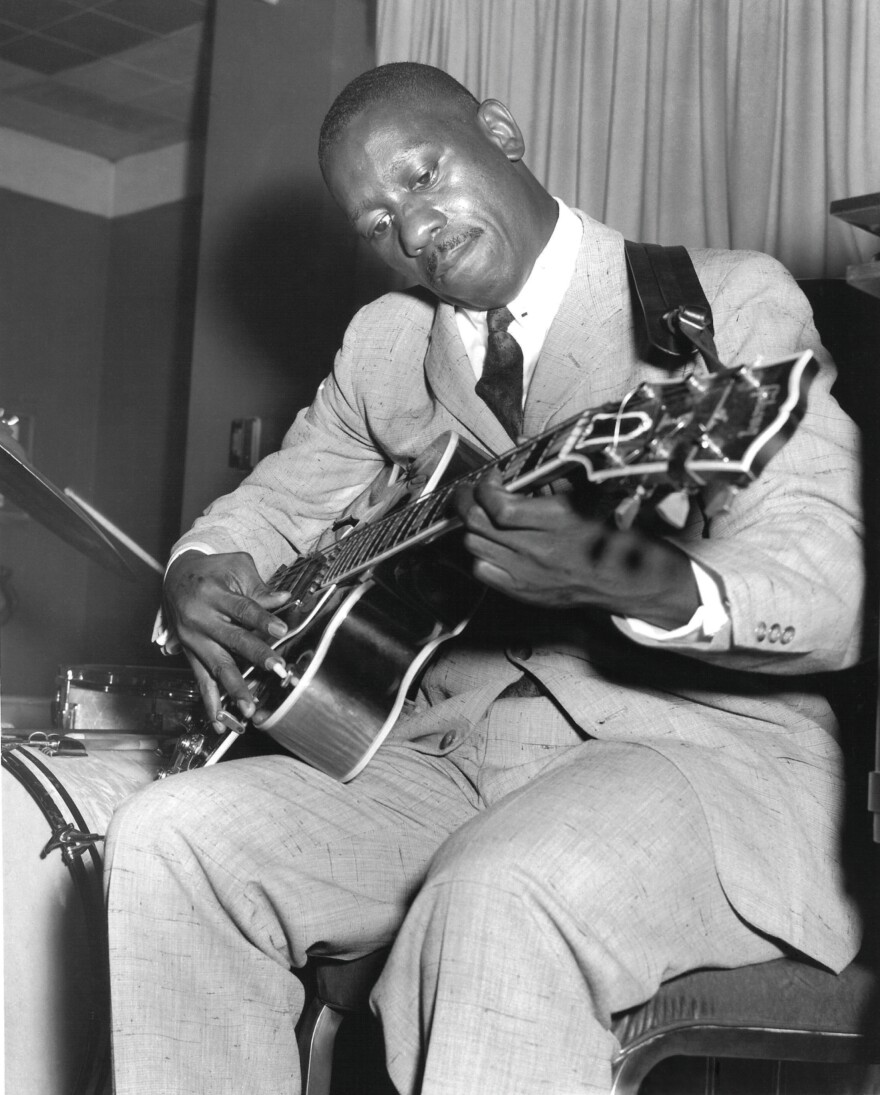Resonance Records became a leading purveyor of historical jazz recordings thanks to two artists in particular: guitarist Wes Montgomery and pianist Bill Evans.
The label, which recently observed its 10th anniversary, has released five Montgomery albums, and three by Evans — all of the music sanctioned for the first time, and most of it previously unissued in any form. Resonance is now about to return to the well with Evans in England, a live 1969 recording by the Bill Evans Trio, and Back on Indiana Avenue: The Carroll DeCamp Recordings, an assortment of early material by Montgomery.
Both albums will initially be released on deluxe, limited-edition vinyl for Record Store Day, on April 13, at participating retailers. They will be available on CD and in digital formats on April 19.
The Wes Montgomery is significant in part because of the music’s provenance. Resonance had its first breakout success seven years ago with Echoes of Indiana Avenue, a chronicle of Montgomery’s early output in Indianapolis, from 1957 to '58. As the title implies, Back on Indiana Avenue builds on that same idea. But more than that: its tapes come from the same source, the late pianist and arranger Carroll DeCamp.
“When we researched and did the detective work on Echoes, we were not privy to where they came from,” explains Zev Feldman, co-president of Resonance, in his liner notes for Back on Indiana Avenue. After the release of Echoes, the truth became clear through the scholarship of jazz historian Lewis Porter, who had maintained a friendly correspondence with DeCamp over the years.

Dr. Porter, who also wrote liner notes for the new release, observes that this music is “a mixture — some jam sessions but some carefully planned. Several have arrangements that were clearly rehearsed. And the solos on these tended to be short — on some tracks it’s clear that everyone agreed in advance to one chorus apiece.”
All of the recordings are presumed to date from 1957 to 1959, prior to Montgomery’s signing to Riverside Records. The track below, which has its premiere below, is an arrangement of Miles Davis’ “So What.”
“So What” is, of course, the opening cut from Miles Davis’ Kind of Blue, which was released on Aug. 17, 1959. This version, then, was probably recorded that fall.
As Dr. Porter observes, Montgomery begins his guitar solo with an oblique nod to Davis’ improvisation on trumpet — suggesting that he had learned the song by listening to the record. His partners in this quartet are unknown, though it likely would have been either Buddy Montgomery or John Bunch on piano, and Monk Montgomery on bass. (The Montgomery Brothers are credited on one track of Echoes of Indiana Avenue.)
In its original iteration on Kind of Blue, the pianist on “So What” was Bill Evans. Which brings us to the other new Resonance release.
Evans in England documents a Dec. 1969 gig at Ronnie Scott’s in London, by an agile Evans trio with bassist Eddie Gomez and drummer Marty Morell. (The same celebrated trio can be heard on Live at Art D’Lugoff’s Top of The Gate, a 2012 release originally recorded in 1968, by future Resonance founder George Klabin.)
In his liner notes for Evans in England, jazz critic and noted Bill-ologist Marc Myers praises the trio’s “velvety synergy,” observing that Gomez and Morell “engaged Evans with a supportive, restless drive without being overbearing or clouding the sound of his piano.” That’s certainly true of this version of “The Two Lonely People,” which Evans composed with the theatrical lyricist Carol Hall.
The song appears here in its earliest known iteration; it wouldn’t surface on record until 1971, on The Bill Evans Album. (It would later be rerecorded by Evans in separate collaborations with singer Tony Bennett and saxophonist Stan Getz.)
Evans begins the ballad in an unaccompanied rubato, as if caught in a reverie. His trio mates join him after about a minute and a half of preamble, when the flutter of pastel chords locks into an easygoing waltz tempo. This is a peak Bill Evans Trio performance: delicate yet determined, unabashed in its yearning lyricism.
“We think this is some extraordinary Bill Evans music that will live on,” Feldman writes in the album notes, “and we’re happy it will now see the light of day.”
For more information about Evans in England and Back on Indiana Avenue, visit Resonance Records online.




